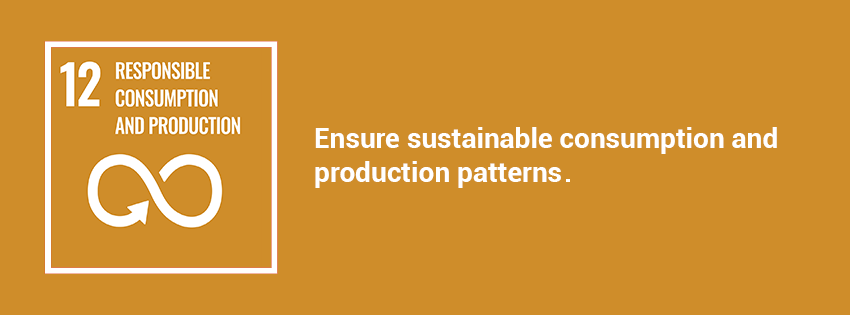
OSTIM Technical University owns policies, processes and practices for waste disposal that cover toxic materials. For chemical waste, UKM adheres to the guidelines on the disposal of scheduled chemical waste, empty bottles, and glass equipment set by OSTIM Technical University.
OSTIM TECHNICAL UNIVERSITY ZERO WASTE FOLLOW-UP REPORT JANUARY-DECEMBER 2024 (link)
OSTIM Technical University supports paperless communication system to reduce paper in daily workplace. It can reduce a lot of paper use that mean OSTIM Technical University can reduce CO2 emissions and make the world a more livable place. Solutions of reusable paper in back office, including using 2-side of paper, always recheck your data before print, use online Electronic Document Management System and Student Information System instead of hard copy. Our university has a slogan for reducing paper consumption.
|
Example of 3R Program for University Waste (OSTIM Technical University, Turkey) |
|
Example of 3R Program for University Waste (OSTIM Technical University, Turkey) |
Electronic Document Management System (Elektronik Belge Yonetim Sistemi / EBYS in Turkish)
https://ebys.ostimteknik.edu.tr/Giris.aspx
OSTIM Technical University > Information Systems > Student Information System
https://obs.ostimteknik.edu.tr/
Plastic Pollution > United Nations Environment Program
https://www.unep.org/plastic-pollution
The beginning of the end for plastics pollution?
https://www.undp.org/blog/beginning-end-plastics-pollution#:~:text=This%20is%20a%20monumental%20year,produce%20and%20dispose%20of%20plastics.
Plastic Waste: a European strategy to protect the planet, defend our citizens and empower our industries
https://ec.europa.eu/commission/presscorner/detail/en/ip_18_5
Plastics strategy
https://environment.ec.europa.eu/strategy/plastics-strategy_en
|
There are 5 baskets for sorting waste. Respectively, E-waste (battery... etc.), paper, glass, plastic and metal.
|
|
Example of 3R Program for University Waste (OSTIM Technical University, Turkey) |
OSTIM Technical University collaborates with the Yenimahalle Municipality in Ankara, Turkey, to recycle all solid waste. The OSTIM Technical University Sustainability Office encourages students and university staff to easily identify what they can and cannot recycle. This initiative allows all types of recyclables—plastic, paper, glass, and aluminum—to be placed in a single container, simplifying the recycling process. Additionally, OSTIM Technical University supports the recycling of electronic waste, including batteries and printer ink cartridges, which should not be disposed of in regular trash due to their high concentrations of toxic chemicals and heavy metals.
Among solid waste materials, only glass and metal are continuously recyclable. Paper waste loses quality with each recycling process, so it cannot be recycled indefinitely. A similar limitation applies to plastic waste, as not all types of plastic can be recycled. Generally, most recycling facilities accept plastics #1 and #2, while plastics #3 through #6 are more challenging to process and may not be accepted by all centers. Plastic #7 is even more difficult to recycle and is almost always excluded.
The treatment of inorganic waste at OSTIM Technical University, developed in collaboration with the Municipality of Yenimahalle, included the installation of an inorganic waste collector for gathering Waste Electrical and Electronic Equipment (WEEE). The primary goal of this project was to optimize and improve the recycling process for small WEEEs, enabling the recovery of valuable precious metals and rare earth elements through a low-impact pilot initiative.
The Battery Project, a joint effort between OSTIM Technical University and the Municipality of Yenimahalle, aims to raise awareness among users and citizens about the collection and recycling of WEEEs to protect the environment.
The website of the Yenimahalle Municipality for recycling
Batteries collected at our university are sent to the Municipality of Yenimahalle battery waste collection center, where our university is located.
The Municipality of Yenimahalle, Ankara, Turkey
https://www.yenimahalle.bel.tr/Icerik/-sifir-atik/16
Our solid waste collected at our university are sent to the Municipality of Yenimahalle battery waste collection center, where our university is located.
The Municipality of Yenimahalle, Ankara, Turkey
https://www.yenimahalle.bel.tr/HaberDetay/yenimahalle%E2%80%99den-geri-donusume-dev-katki/219
The Municipality of Yenimahalle has a 6-day solid waste collection program for different districts. In the Ostim neighborhood where our university is located, solid waste is collected only on Mondays.
https://www.yenimahalle.bel.tr/Icerik/-sifir-atik/16
E-mail for more info: sifiratik@yenimahalle.bel.tr
|
E-waste recycling bin |
|
|
|
|
1 |
2 |
|
|
|
|
3 |
4 |
|
Example of Program to Reduce the Use of Paper and Plastic in the Campuses (OSTIM Technical University, Turkey) |
As part of global efforts to combat climate change, OSTIM Technical University’s policies contribute to Turkey’s commitments under the Paris Agreement. By reducing waste, minimizing the use of plastic, and promoting recycling, the university helps decrease carbon emissions, reduce environmental degradation, and support sustainable development goals.
Turkish Waste Management Regulation (No. 29314):
The university’s waste disposal policies also follow the Turkish Waste Management Regulation, which governs the collection, transportation, and disposal of waste, including hazardous and non-hazardous materials. This regulation emphasizes the importance of reducing waste generation at its source and encourages recycling initiatives, both of which are key elements of the university’s waste management strategy.
By basing its policies on these national and international legal frameworks, OSTIM Technical University ensures compliance with the law while fostering a culture of sustainability and environmental stewardship. The university is committed to continuous improvement in these areas to contribute to a healthier and more sustainable future.